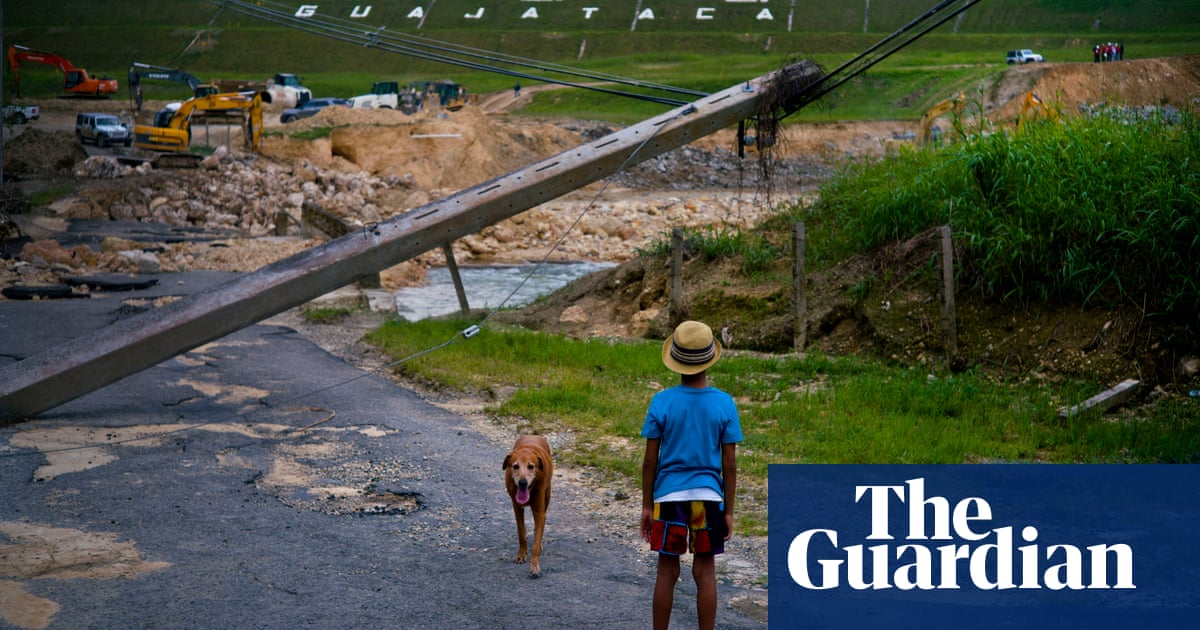Puerto Ricohas voluntarily dismissed its 2024 climate lawsuit against big oil, a Friday legal filing shows, just two days after the US justice department sued two states over planned litigation against oil companies for their role in the climate crisis.
Puerto Rico’slawsuit, filed in July, alleged that the oil and gas giants had misled the public about the climate dangers associated with their products. It came as part of a wave of litigation filed by dozens of US states, cities and municipalities in recent years.
Donald Trump’s administration has pledged to put an end to these cases, which he has called “frivolous” and claimed are unconstitutional. In court filings on Wednesday, his justice departmentclaimedthe Clean Air Act “displaces” states’ ability to regulate greenhouse gas outside their borders.
The agency specifically targeted Michigan, whose Democratic attorney general last year tapped private law firms to work on such a case, and Hawaii, whose Democratic governor filed its suit on Thursday. Officials from both states condemned the justice department’s filings.
Friday’s filing from Puerto Rico did not list a reason for the lawsuit’s dismissal. The Guardian has contacted the territory’s attorney general’s office for comment and asked whether it was related to the Trump administration’s moves on Wednesday.
Reached for comment, John Lamson, a spokesperson for the San Francisco-based law firm Sher Edling, which filed the 2024 suit on behalf ofPuerto Ricosaid: “We serve under the direction and control, and at the pleasure, of our clients in all of our representations.”
Puerto Rico in November elected Republican governor Jenniffer González-Colón, aTrump ally. In February, González-Colón tappedJanet Parra-Mercadoas the territory’s new attorney general.
Climate-accountability litigation has also faced recent attacks in the media. Last month, an oilfield services executivepublished an op-edin Forbes saying the Puerto Rico lawsuit “may derail” efforts to improve grid reliability.
Groups tied to far-right legal architect Leonard Leo have alsocampaignedagainst the lawsuits. And just days before the voluntary dismissal, the rightwing, pro-fossil fuel advocacy group American Energy Institute (AEI)sent a letterto González-Colón, Fox Newsreported, calling for an end to climate-focused “coordinated lawfare”.
“Their goal is to bankrupt energy companies or to leverage the threat of tort damages to force outcomes that would be disastrous for Puerto Rico and the rest of the nation,” AEI’s CEO Jason Isaac wrote of the plaintiffs.
AEI has attackedclimate-focused legal effortsand has beenlinked to Leo, the Guardian has reported.
In December, a California-based trade association of commercial fishers voluntarily dismissed a lawsuit accusing big oil of climate deception.
In two earlier lawsuits,thirty-seven Puerto Rico municipalitiesand thecapital city of San Juanaccused fossil fuel companies of conspiring todeceive the public about the climate crisis, seeking to hold them accountable for the devastation wrought by Hurricane Maria.
